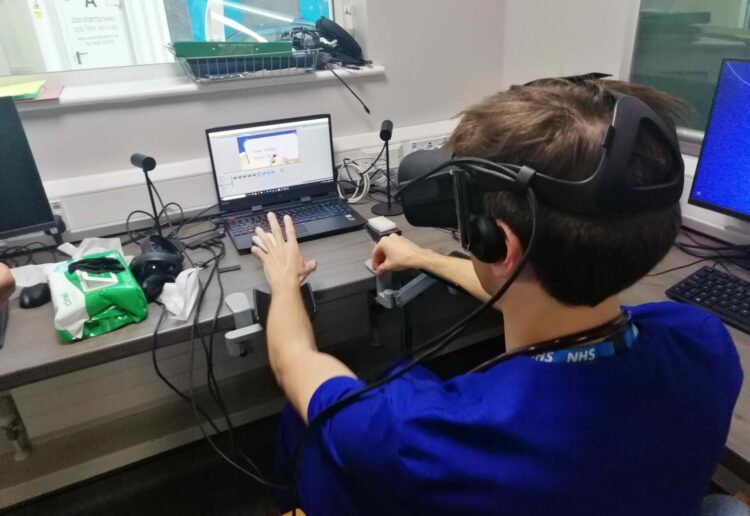Virtual reality technology has shown promising results for helping stroke patients regain arm movements, according to a new study led by the University of Reading and Royal Berkshire NHS Foundation Trust.
The research, published in the journal Displays, shows that combining immersive virtual reality with traditional physiotherapy could significantly improve upper limb function in stroke patients.
This approach, developed by a team from the University’s School of Biological Sciences and Royal Berkshire Hospital’s Stroke Unit, offers new hope for local stroke survivors.
The study involved 18 local patients who received either traditional physiotherapy alone or combined with the new virtual reality treatment. Those who received the combined therapy showed marked improvement in their arm function, as measured by standardised assessments.
It found significant improvement in arm movement for patients using the virtual reality system and no serious adverse effects reported during the trial.
It also showed high levels of patient engagement with the therapy and potential for wider implementation in stroke rehabilitation programmes.
The research team emphasises, however, that while these results are promising, further studies will be needed to fully understand the potential of this technology.
Samirah Altukhaim, who studied for her PhD at Reading and led the study, said: “Patients described the therapy as fun and motivating, encouraging greater use of the affected hand. They noted improvements in hand coordination and control, making movements feel natural, as if full control had been regained.”
Dr Kiruba Nagaratnam, from the University Department of Stroke Medicine at Royal Berkshire Hospital, said: “This collaboration between the University of Reading and our department has allowed us to explore innovative ways to enhance stroke rehabilitation.
“The results are particularly encouraging as they show how local research can directly benefit our patients.”
























